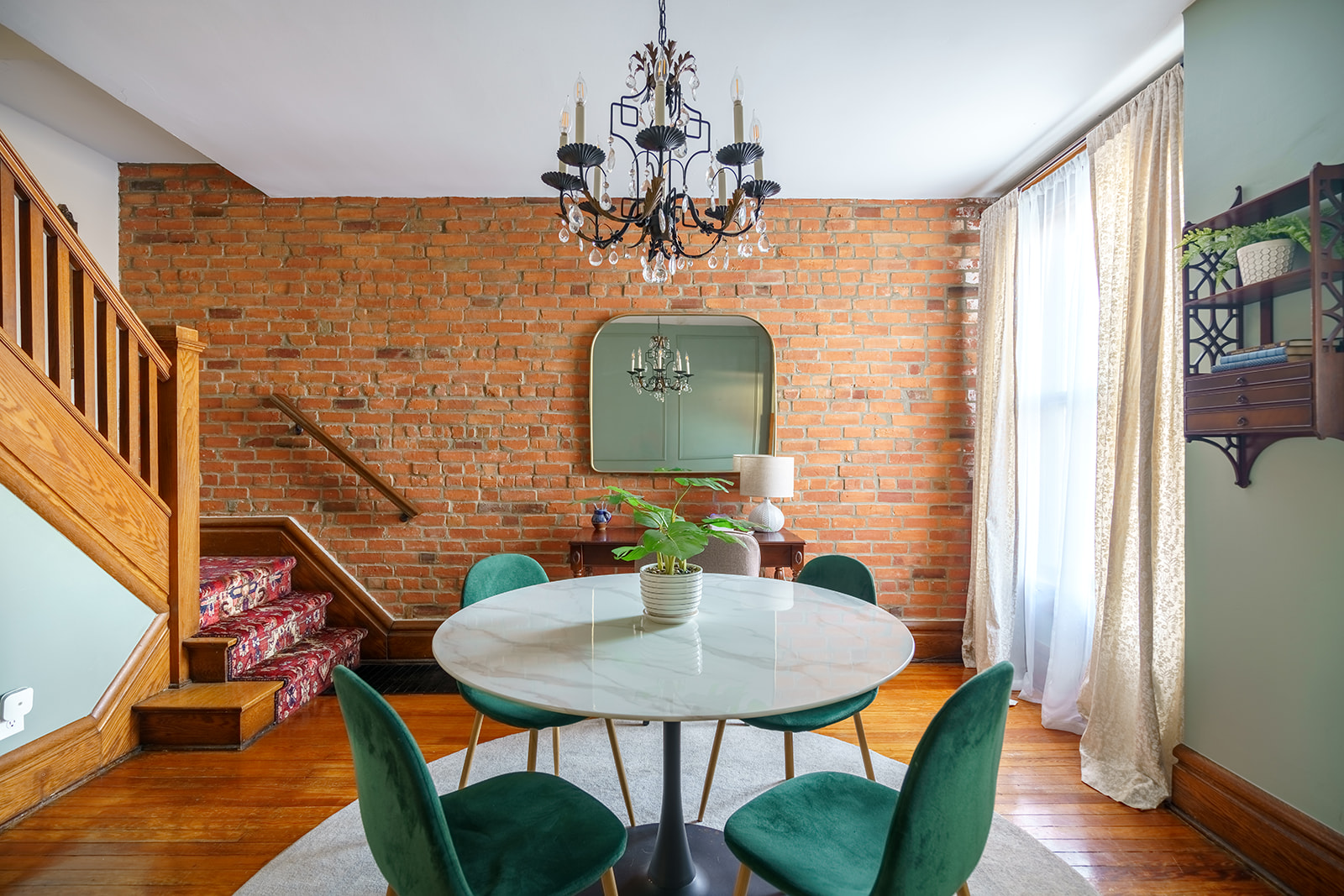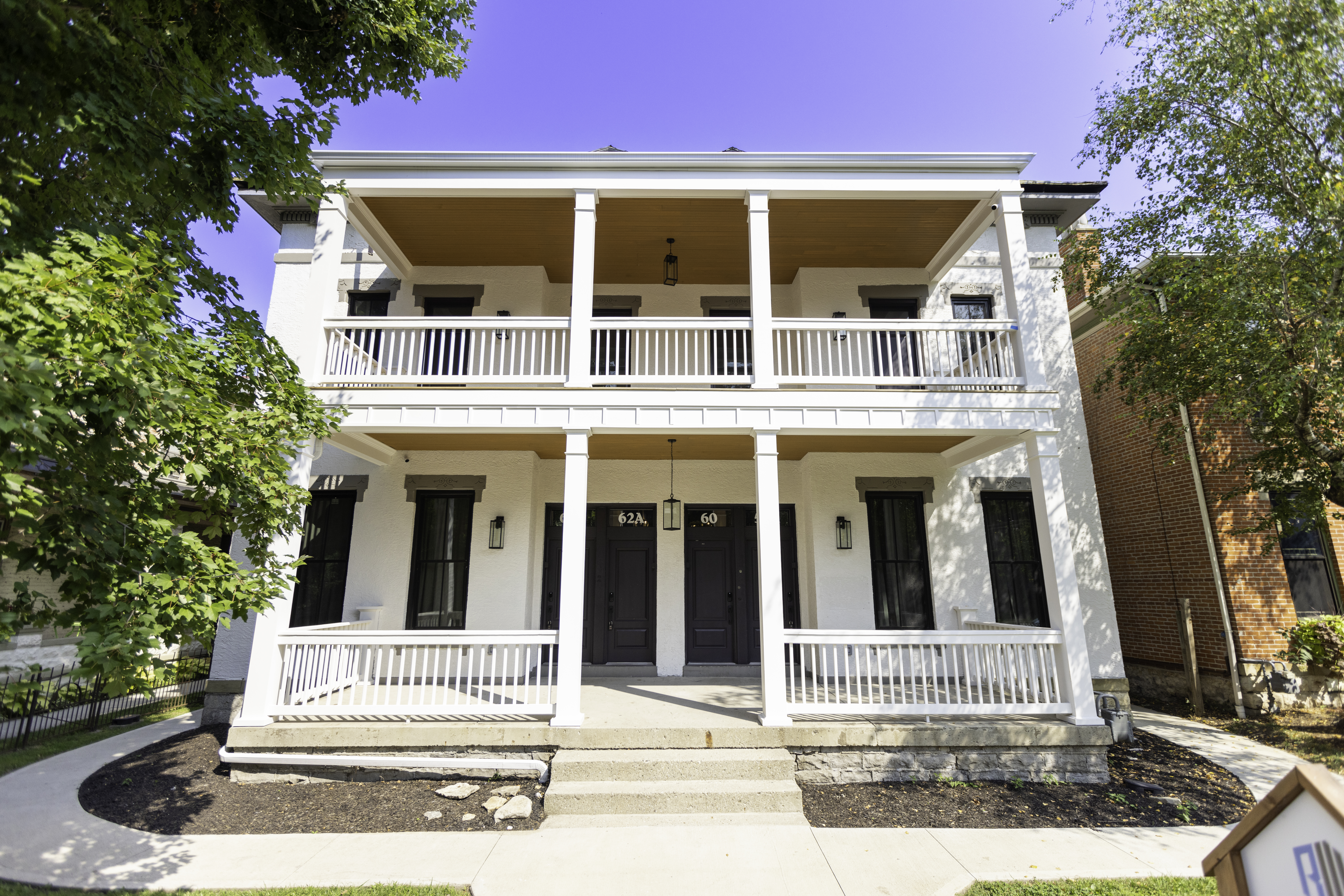
Ready to boost your Airbnb Bookings? Try this hot tips!
You’ve spent countless hours getting your rental ready. The furniture is perfect, the decor is just right, and you know guests will love your Airbnb property. But there’s one small part of your listing that holds a massive amount of power: the title. We get asked about Airbnb listing title tips all the time, and one debate always comes up.
Should you use your property’s name in your title? Some hosts think it’s a clever way to encourage direct bookings, but this approach could be costing you valuable bookings. Let’s talk about some effective Airbnb listing title tips that actually work and help your short-term rental stand out.
We’ve rounded up all of our Airbnb Hosting Must-Haves right here in our Amazon Store. Click here to grab everything you need to curate your property and start earning 5-star reviews.
- The Great Debate: Property Name in Your Airbnb Title?
- Why “Hoping” Isn’t a Real Direct Booking Strategy
- Building a Real Off-Platform Presence
- Proven Airbnb Listing Title Tips for More Bookings
- Putting It All Together: Title Formulas & Examples
- A Word of Caution: Playing Games with Airbnb
- Conclusion
The Great Debate: Property Name in Your Airbnb Title?
We saw a great comment from a host recently. They suggested using your property’s name, like “The Treetop Escape,” directly in your Airbnb title. Their thinking was that it gives savvy guests a breadcrumb to pop that name into Google and find your direct booking site.
On the surface, this sounds like a smart move. Who wouldn’t want to get a direct booking and avoid Airbnb’s fees? It feels like you’re outsmarting the system when creating your Airbnb listing.
But we believe this is more of a hopeful hack than a real strategy. It puts a lot of work on the potential guests and relies on a very specific set of actions. This can be a huge misstep when your goal is to make booking as easy as possible and craft the perfect title.
Why “Hoping” Isn’t a Real Direct Booking Strategy
Let’s think about what you’re asking a potential guest to do. They’re scrolling through dozens, maybe hundreds, of Airbnb listings on the app. You’re hoping they not only see your Airbnb title but also remember your specific property name from a sea of other airbnb names.
Then, they have to stop what they’re doing. They need to close the app they feel secure in, open a web browser, and start searching for your vacation rental. They have to hope they spell the name correctly and find the right property in the right city.
Once they land on your site, they need to feel confident enough to enter their credit card information on a website they’ve never seen before. That’s a lot of friction. Guests search for ease and security, and any obstacle can cause them to abandon the effort and return to the familiar platform.
We recently tried to do this ourselves. We were looking for a place in Nashville and found a couple of hosts we wanted to support directly. We found a direct booking site and even saw a live chat option available from 8 a.m. to 8 p.m., which seemed promising for a great Airbnb experience.
I started a chat with a simple question and waited. Then I waited some more. No one ever responded, even when I checked back the next morning for the latest reply.
The process of even trying to get a price for my dates was clunky and confusing. Frustrated and on a tight timeline, I went back to Airbnb. I booked a fantastic place with Instant Book in just a few minutes. That host lost out on a booking of over $1,000 because their direct booking experience was broken.
This is why we feel so strongly about this issue. This reliance on a guest to “figure it out” is not a business strategy for property managers. You are still completely dependent on Airbnb to send you that traffic in the first place, making this a flawed approach to rental management.
Building a Real Off-Platform Presence
Instead of trying to poach guests from Airbnb, spend that energy building a true path to your front door. You need to create awareness for your brand completely separate from any listing platform. True platform independence is something that you have to build over time to increase revenue.
So, how do you do it? It starts with getting in front of an Airbnb guest before they even think to open the Airbnb app. This means you need a multi-faceted approach to your marketing and property management.
A good idea is to build an email list of past guests and send them special offers to encourage repeat stays. You could start a blog for your short-term rentals focused on local attractions, which is a fantastic way to capture search traffic. This helps you show up in Google search results when people are planning their trips and gives you a chance to highlight your property’s distinctive features.
Don’t forget the power of local partnerships. Connect with wedding planners, local businesses, or event coordinators who can refer guests to you. Offering a referral bonus gives them an incentive to send people your way, building a pipeline of potential guests separate from the big platforms.
This is what allows you to actually control the conversation and understand market insights. You control the pricing, the policies, and most importantly, the guest relationship from start to finish. Putting your property name in your title and crossing your fingers is not independence; it’s just dependence with a different label, a common mistake when managing Airbnb properties.
Proven Airbnb Listing Title Tips for More Bookings
So, if you’re not using your property’s name, what should you put in your title? Your Airbnb listing title has one job: stop the scroll. Think of the search results page as a busy, crowded street; your title is your sign, and it needs to draw attention.
Every bit of space on the Airbnb website is carefully planned and tested. The fact that they give you a 50 character limit for listing titles means that space is extremely valuable. A great title instantly answers the question, “Why should I click on this listing?” Here are the key takeaways your title should highlight.
Highlight What Makes Your Space Special
What is the first thing a guest would notice about your home’s style or property type? Are you an A-frame cabin, a lakefront cottage, or a modern city-center apartment? Use descriptive words that create an immediate mental image.
Think about the words your target audience might be searching for. Words like “log cabin,” “ocean view,” “beachfront,” or “downtown loft” can act as a powerful search word. They help you attract the right kind of guest who is looking for exactly what you offer.
This is your first chance to differentiate yourself from the generic listings around you. If you have any special architectural style or a standout feature, lead with that. Your title highlights your best assets first.
Showcase Your Best Amenities
What do your past guests rave about in their reviews? Do they love your hot tub, your fully-stocked chef’s kitchen, or the cozy fire pit? These are your unique selling points and should be front and center.
Think about what guests in your area are looking for. In a mountain town, a hot tub or fireplace is a huge draw, making it the perfect romantic escape. For a family-friendly destination, a pool or a game room could be the amenity that seals the deal.
Pick one or two of your most impactful amenities and put them right in the catchy Airbnb title. This gives guests a clear reason to choose you over a competitor. It moves them from just looking to imagining themselves enjoying your space.
Our favorite amenity? The Forgot Something Basket. A signature in all of our units – grab the full checklist for free right here.
Sell Your Proximity to Attractions
Location is often a top priority for travelers. Is your property a short walk to the beach? Are you right next to a popular stadium or conference center? Use your catchy Airbnb titles to highlight this convenience.
Be specific. Instead of saying “close to downtown,” try “5-Min Walk to Main St.” Specificity builds trust and helps guests plan their trip. Phrases like “Steps to the Slopes” or “Walk to Convention Center” are incredibly effective.
Answering the location question in your title saves guests a click. It tells them right away that your property fits their logistical needs. An Airbnb title appeals more when it solves a problem for the guest immediately.
Putting It All Together: Title Formulas & Examples
Now, let’s combine these elements into a powerful, attention-grabbing title. You want to pack as much information as possible into those 50 characters without it feeling cluttered. Think of it as a compelling headline for your rental; it’s a critical part of how you create an Airbnb title that converts.
A simple formula you can use is: [Vibe/Property Type] + [Top Amenity] + [Key Location Perk]. You don’t have to use all three, but aim for at least two. Emojis can also work well to save space and add visual appeal, but use them sparingly. Many free tools are available to check character counts as you experiment.
Here’s a look at some title examples showing how you can transform a generic, name-based title into a booking magnet. Airbnb hosts who change title strategies often see a direct impact.
| Instead Of This (Property Name) | Try This (Feature-Focused) |
|---|---|
| Serenity Ridge Retreat | Secluded Cabin w/Hot Tub • 10m to Wineries |
| The Gathering House | Chef’s Kitchen & Fire Pit • Walk to Park |
| The Urban Nest | Modern Downtown Loft • Steps to Stadium |
| Lakeside Manor | Lakefront Home w/Private Dock & Kayaks |
| The Cozy Corner | Pet-Friendly Studio Walk to Downtown |
| The Sunrise Spot | Oceanview Balcony ️ Beachfront Access |
Do you see the difference? The “before” titles mean nothing to a new guest. The “after” airbnb titles tell them exactly what they’re getting and why it’s special.
You’re selling the experience, not just the name of a house. This approach helps guests immediately self-select and picture themselves having a great time at your property. That connection is what drives bookings for so many Airbnb properties.
A Word of Caution: Playing Games with Airbnb
There’s another important reason to rethink putting your business name in your title. Platforms like Airbnb are getting much smarter about keeping business on their site. Their policies and community guidelines are often updated to prevent hosts from redirecting guests elsewhere.
Do you really think their advanced algorithms can’t spot a business name in a title? On a host forum, I saw a discussion where a community manager from the Suffolk Coastal district in the United Kingdom had to weigh in. The manager, let’s call her Rebecca, pointed out that attempts to divert traffic can get your listing flagged.
While this comment was from the Rebecca community manager suffolk coastal team, the principle is global. You risk getting your listing penalized or even suspended. If you see others breaking rules, it is better to report inappropriate content rather than copy them. Always review the latest guidelines before trying a shortcut that could jeopardize your business.
Key Takeaways
The debate over what to include in your title is really a conversation about business strategy. Putting your property name in your title isn’t necessarily a bad idea, but it’s not doing the job you think it is. It doesn’t build your brand in a meaningful way, and it’s an ineffective way to generate direct leads.
Instead, we want you to have two distinct strategies. One is for winning on Airbnb, which means using every tool, including your Airbnb title, to its fullest potential to capture your target audience. The other is a dedicated plan to build your own brand off the platform through solid rental management practices.
These fantastic Airbnb listing title tips should help you use that valuable space to highlight your property’s unique selling points. Focus on crafting a catchy Airbnb title that will stand out, stop the scroll, and ultimately earn you more bookings.
If you’re loving these tips and want to take your hosting game even further, check out our post on 5 Easy Ways to Double Your Direct Bookings! We’re sharing simple, proven strategies (including one of our favorite tools, StayFi) to help you turn one-time Airbnb guests into loyal, repeat bookers who come straight to you.
Keep Learning with Us
Your hosting journey doesn’t stop here! 🎉 Whether you’re looking for the tools we personally use to run our rentals or want to dive deeper into strategies that make hosting more profitable and enjoyable, we’ve got you covered. Head over to Thanks For Visiting to learn more and explore our favorite trusted tools, free resources, and next steps for growing your hosting business.
Happy Hosting!



show comments
HIDE comments